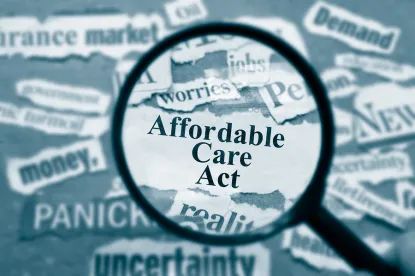On December 20, 2019, the Centers for Medicare and Medicaid Services (CMS) issued a final rule on program integrity for Affordable Care Act (ACA) exchange plans. This rule implements a number of provisions from the ACA, including the requirement that each state have the opportunity to establish an Exchange, as well as the steps the Secretary of Health and Human Services (HHS) may take to oversee Exchanges’ compliance with HHS standards, including ensuring their financial integrity, including conducting investigations and annual audits, and the requirement that the Secretary establish procedures to verify the accuracy of information provided by applicants, including eligibility to purchase qualified health plans (QHPs) through the Exchange and for advance payments of premium tax credit (APTC) and cost-sharing reductions (CSRs).
CMS reiterated that it remains committed to improving Exchange program integrity and, therefore, added language to Section 155.200(c) to clarify that Exchanges are required to cooperate with activities related to oversight and financial integrity, including disclosing applicant personally identifiable information (PII) if necessary. The Final Rule also adds a new paragraph (d)(3) to Section 155.330, which requires Exchanges to periodically examine available data sources to determine whether enrollees in a QHP through an Exchange with APTC or CSRs have been determined eligible for or enrolled in other qualifying coverage through Medicare, Medicaid, CHIP, or the BHP, if applicable. The new (d)(3) specifies that Exchanges would be required to conduct periodic data matching (PDM) at least twice a calendar year, beginning with the 2021 calendar year. Commenters generally supported CMS’ PDM changes, stating that they believe the process helps inform consumers of their enrollment in potentially duplicative programs and to help consumers avoid a tax liability (e.g., for having to repay APTC received during months of overlapping coverage).
The Final Rule also modified Section 155.1200 regarding general program integrity and oversight requirements for State Exchanges in order for HHS to identify State Exchange non-compliance issues with more precision and efficacy. One of the key changes is that (d)(2) was revised to make clear that HHS may specify or target the scope of a programmatic audit to address compliance with particular Exchange program areas or requirements, which HHS believes will allow it to focus on program areas that have higher program integrity risks in a more consistent manner, rather than covering all areas.



 />i
/>i

